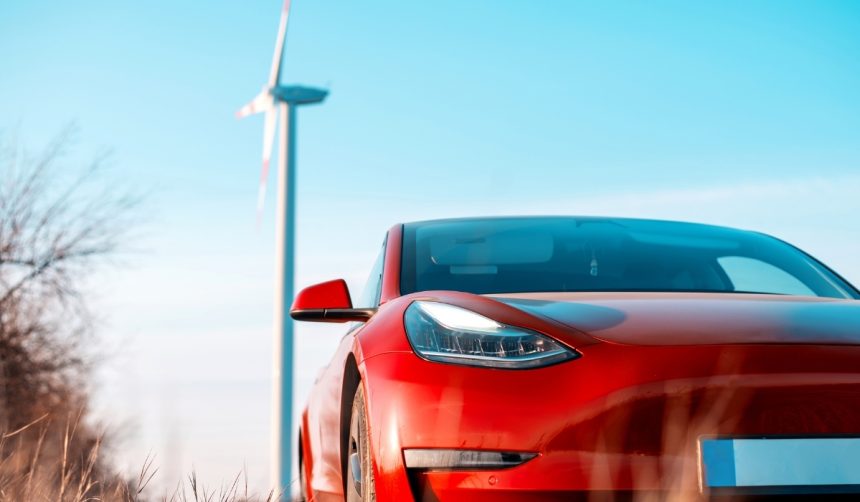Tesla reported a significant rise in its UK sales for June, posting a 14% increase compared to the same period last year. This surge comes as the British auto market is experiencing strong interest in battery electric vehicles (BEVs), even while certain challenges remain in sustaining that momentum. The June performance signals renewed consumer curiosity for Tesla’s offerings, with particular attention centered on the updated Model Y, which arrived in showrooms that month. The outcome reflects both strategic product launches and heightened public acceptance of electric mobility in the UK, coinciding with the start of summer when driving demand typically increases.
Recent years show that Tesla’s presence in the UK has fluctuated, with previous quarters occasionally registering slower growth or declines due to broader market conditions, supply constraints, or changing consumer incentives. Last year saw more modest gains for Tesla, despite strong performances from other electric vehicle brands such as Nissan and Volkswagen in the region. With the introduction of the updated Model Y and continued government support for electric vehicles, Tesla’s rebound this June compares favorably to earlier periods where electric vehicle growth was more evenly distributed among a wider field of competitors. Some market observers have highlighted the intensification of competition, noting especially the rapid rise of Chinese manufacturers like BYD in the British electric vehicle sector.
How Did Model Y Deliveries Impact Tesla’s UK Sales?
Tesla attributed its stronger performance in part to the first UK deliveries of the updated Model Y. Industry data shows that 7,719 Tesla units were delivered in June, as reported by the Society of Motor Manufacturers and Traders (SMMT), although third-party New AutoMotive data suggests registrations actually reached 7,891 units. While these figures illustrate Tesla’s upward trajectory, cumulative year-to-date sales are still around 2% below last year’s total, despite this June’s improvement.
Are Other Automakers Keeping Pace in the UK EV Market?
Several competitors recorded large advances alongside Tesla. BYD, a Chinese electric car maker, expanded its UK presence substantially, increasing sales nearly fourfold to reach 2,498 vehicles last month. Ford outpaced many of its peers with similar growth trends in electric vehicles, marking more than a fourfold rise in the first half of 2025. Across the board, BEV demand in the UK reached 47,354 vehicles in June, a 39% year-over-year increase that helped lift total new car registrations for the month by 6.7% to 191,316 units.
What Factors Influence UK EV Growth Going Forward?
SMMT analysts warned that while interest in BEVs remains elevated, continued growth leans heavily on incentives and consumer support measures.
“Further growth in sales, and the sector will rely on increased and improved charging facilities to boost mainstream electric vehicle adoption,”
commented Mike Hawes, SMMT’s Chief Executive. Despite the best car sales month in the UK since 2019, current levels still fall short of official regulatory targets, underscoring gaps in mass-market adoption and charging infrastructure. Roughly one in four new car buyers in June chose a BEV, confirming a steady shift in consumer preferences.
The new US-UK trade deal, which reduced tariffs on UK car exports to the United States from 27.5% to 10%, may further benefit British EV makers. Such agreements could bolster Tesla and its competitors, enabling improved export opportunities and higher production incentives.
Tesla’s June bounce reflects more than the popularity of a new vehicle; it mirrors a larger shift within the UK mobility sector toward electrification, as consumers and automakers alike respond to policy incentives, fresh product launches, and competitive pricing. Ongoing infrastructure investments and reduced export tariffs may help sustain this trend, but the industry continues to confront pressures relating to charging logistics and meeting government benchmarks. For consumers, staying informed about the rapid changes in pricing structures, available incentives, and upcoming EV models will be essential for making timely purchasing decisions. As carmakers race to expand their electric offerings, buyers can expect further variety and increasingly competitive conditions in the UK electric vehicle market.
- Tesla’s June sales in the UK rose 14% to 7,719 vehicles.
- Electric vehicle demand was strong, but infrastructure challenges persist.
- Trade deals and new models shape the UK EV market’s direction.










